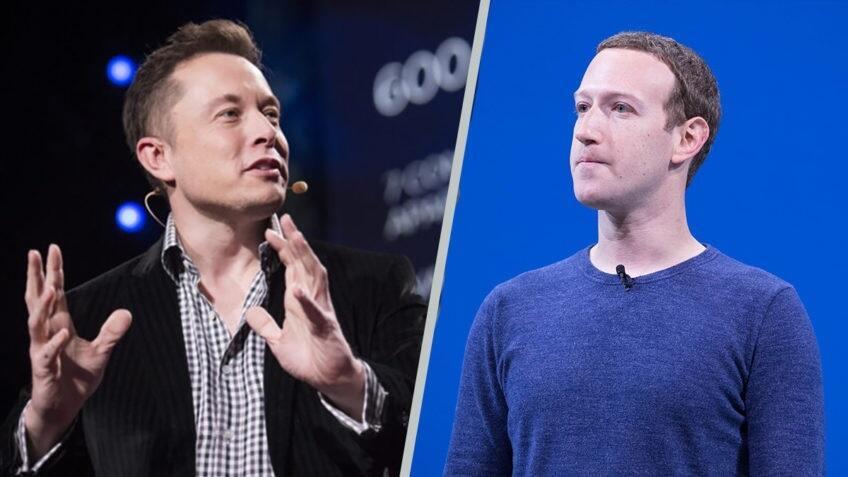In an astonishing display of its growing popularity, Threads amassed an impressive 30 million users within a mere 24 hours of its release while becoming Twitters biggest threat to date.
Meta, which also owns Facebook and Instagram, launched the new platform yesterday, ahead of schedule. Threads was welcomed almost immediately – especially by hordes of Twitter users that have watched in dismay as their beloved platform crumbles in the hands of Elon Musk.
Threads amassed an impressive 30 million users within 24 hours – A Twitter Killer ?
With Meta already boasting a user base of over two billion on Instagram, a direct integration of these accounts with Threads promises exponential growth in its user numbers.
In less than 24 hours, Threads attracted some 30 million users. With Meta already having more than two billion Instagram users who can directly link their Threads’ user base will grow quickly.
Additionally, Threads received an astounding 5 million sign-ups within a matter of hours. Mark Zuckerberg, the CEO of Meta, proudly shared this achievement, highlighting the significant potential of Threads to challenge Twitter’s dominance.
The advent of Threads signifies a seismic shift in the social media realm. With its innovative features and Meta’s established presence in the digital landscape, the app has positioned itself as a formidable adversary to Twitter.
As users flock to Threads for its fresh approach to social networking, Twitter faces an unprecedented challenge to retain its user base and relevance in the ever-evolving social media landscape.
Threads is easily recognizable as a platform resembling Twitter, thanks to its uncomplicated monochrome interface and its array of functionalities like replying, expressing love, quoting, and commenting on others’ “threads.”
The pertinent query that arises is: Could Threads emerge as the formidable contender that displaces Twitter once and for all?
In October 2022, Elon Musk’s ascent to CEO of Twitter left users feeling powerless. Mastodon emerged as the initial “escape plan,” but its decentralised servers proved to be perplexing and challenging to navigate due to varying content rules and communities.
Many loyal Twitter followers created backup Mastodon accounts as a precautionary measure in case Twitter experienced a crash, while eagerly anticipating Musk’s next moves. It didn’t take long for the situation to unfold.
As Musk initiated layoffs, causing approximately 80 percent of Twitter’s original workforce to be let go, platform instability and outages became commonplace.
Soon after, Musk shocked users and garnered attention by disrupting Twitter’s verification system, imposing a fee on “blue tick” holders for authentication privileges.
Consequently, this opened the floodgates for account impersonation and the widespread dissemination of misinformation. Several major corporate brands chose to depart from the platform, withdrawing their advertising investments.
Furthermore, Musk controversially labeled reputable news organizations like the BBC as “state-owned” media, a stance he eventually retracted in the face of public backlash.
More recently, he imposed restrictions on the number of tweets users can view and announced changes to TweetDeck (a platform for managing multiple Twitter accounts)
Feature Showdown: Threads vs. Twitter
While both Threads and Twitter serve as platforms for sharing thoughts and engaging with others, they have distinct features that set them apart. Threads emphasizes simplicity and ease of use, with a visually appealing user interface that appeals to those seeking a minimalist experience.
On the other hand, Twitter offers a broader range of features, including trending topics, hashtags, and multimedia integration, making it a versatile platform for news, entertainment, and networking.
User Experience: The Deciding Factor
- Ultimately, the success of any social media platform lies in its ability to captivate and retain users. Threads’ quick rise in popularity indicates that many users appreciate its clean and straightforward approach.
- It provides an alternative for those who find Twitter’s fast-paced nature overwhelming. However, Twitter’s established user base and the vast network it has cultivated over the years are significant advantages.
- Twitter’s real-time updates, extensive reach, and ability to spark global conversations are aspects that continue to attract millions of users.
The Future of Social Media: Who Will Prevail?
As Threads and Twitter compete for users’ attention and loyalty, the future of social media hangs in the balance. While Threads has shown promise with its impressive sign-up numbers and Meta’s backing, Twitter remains a formidable force with its large user base and influential presence.
Both platforms face challenges, such as maintaining user engagement, addressing misinformation, and adapting to evolving user needs.
Thread’s Advantage over Twitter:
Meta has a track record of leveraging popular features from competing platforms to attract users seeking alternative options. For instance, Instagram Stories, inspired by Snapchat, and Instagram Reels, inspired by TikTok, have been successful ventures for Meta.
This ability to replicate and innovate has helped Meta amass an impressive user count of 2 billion, which is approximately eight times the size of Twitter’s user base.
Given the association between Instagram and Threads, Meta enjoys a significant advantage, benefiting from a vast and diverse global user base.
Meta unveiles plans to transition Threads towards a decentralised infrastructure.
Meta has revealed its future intentions to gradually transition Threads to a decentralised infrastructure. The app’s “How Threads Works” section outlines Meta’s vision of future versions of Threads being compatible with the fediverse, allowing individuals to follow and engage with one another across diverse platforms, including Mastodon.
The strategic move signifies Meta’s commitment to fostering a more interconnected social media experience, enabling users to access and interact with Threads content seamlessly, regardless of the specific platform they choose.
Following the launch of Threads, Elon Musk insinuated that the app was essentially a replica of Twitter’s design. However, it is important to consider Musk’s remarks within the context of his own platform’s challenges.
In a clear indication of Twitter perceiving Threads as a significant competitor, the social media giant is now pursuing a lawsuit against Meta following the highly successful launch of Threads, Meta’s Twitter alternative.
An attorney representing Twitter sent Meta CEO Mark Zuckerberg a letter accusing the company of trade secret theft through the hiring of former Twitter employees.
The letter by Alex Spiro, an outside lawyer for Twitter owner Elon Musk, alleged that Meta had engaged in “systematic, willful, and unlawful misappropriation of Twitter’s trade secrets and other intellectual property”.
According to the letter, Meta has been accused of hiring former Twitter employees who allegedly retained confidential Twitter documents and electronic devices in violation of their obligations.
Meta spokesperson Andy Stone flatly dismissed the letter. “No one on the Threads engineering team is a former Twitter employee — that’s just not a thing,” he said on Threads.
Despite Elon Musk’s acquisition of Twitter for the sum of US$44 billion (valued at $68 billion during the acquisition), the social networking giant has faced increasing competition from smaller microblogging platforms.
The rivalry between the two CEOs introduces an intriguing element to the ever-changing social media arena, highlighting the competitive nature of the industry.







